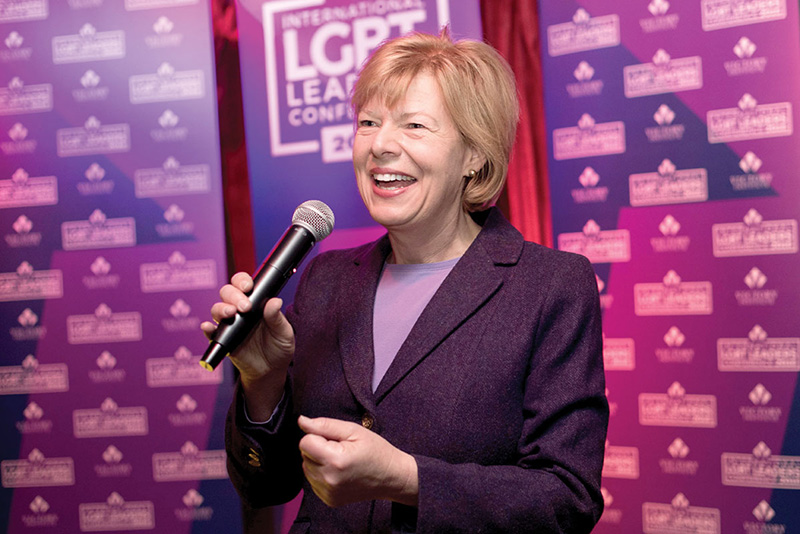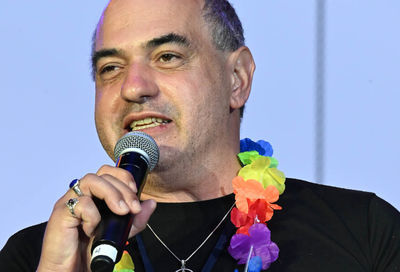World Bank Freezes New Loans to Uganda Over Anti-Gay Law
The global financial organization says anti-LGBTQ law runs counter to its values of inclusion and anti-discrimination.

The World Bank will not consider granting new loans to Uganda after the country enacted a bill targeting the LGBTQ community and imposing the death penalty for some acts involving same-sex intimacy.
The international finance organization had deployed a team to Uganda after President Yoweri Museveni signed the Anti-Homosexuality Act into effect in May.
That team determined additional measures needed to be taken to ensure projects align with the bank’s environmental and social standards.
“Our goal is to protect sexual and gender minorities from discrimination and exclusion in the projects we finance,” the World Bank said in a statement. “These measures are currently under discussion with authorities…. No new public financing to Uganda will be presented to our Board of Executive Directors until the efficacy of the additional measures.
“The World Bank Group has a longstanding and productive relationship with Uganda; and we remain committed to helping all Ugandans — without exception — escape poverty, access vital services, and improve their lives.”
The freeze on additional lending will not affect the World Bank’s existing portfolio of nearly $5.2 billion in Uganda.
Under Uganda’s Anti-Homosexuality Act, anyone found guilty of “promoting” homosexuality, including expressing support for expanded LGBTQ rights or disseminating information that presents homosexuality as normal or in a positive light, can be punished with up to 20 years in prison.
Engaging in same-sex intimacy merits a lifetime sentence, which “aggravated homosexuality” — defined as engaging in same-sex relations while living with HIV, or coercing someone else into engaging in same-sex acts — is punishable by death.
The bill enjoys widespread support among the populace, and Ugandan officials have warned that the country may face a backlash for the law, with pro-LGBTQ organizations threatening to withdraw financial support, reports the BBC.
Although the measure has been challenged in court, with critics questioning its constitutionality, it is unclear when hearings will begin or whether the courts will block the law from being enforced.
Ugandan government officials slammed the World Bank’s decision as unjust and hypocritical, especially since there are other countries with laws more hostile to the LGBTQ community. For instance, they point out, 29 other African countries criminalize homosexuality, as do many Middle Eastern and Caribbean nations, but they have not been denied future funding as of yet.
“There are many Middle East countries who do not tolerate homosexuals, they actually hang and execute homosexuals,” Okello Oryem, the state minister for foreign affairs, told Reuters. “In the U.S., many states have passed laws that are either against or restrict activities of homosexuality…. So why pick on Uganda?”
Museveni criticized the decision to suspend new funding to Uganda, saying the country was trying to reduce borrowing and would not caver to pressure from foreign institutions.
“It is…unfortunate that the World Bank and other actors dare to want to coerce us into abandoning our faith, culture, principles and sovereignty, using money,” he said. “They really underestimate all Africans.”
He added that if Uganda wants to borrow, it could tap other sources, and noted that oil production that is expected to start by 2025 could provide additional revenues.
Museveni called on the World Bank to reconsider its decision, which would force Uganda to revise its budget to reflect the potential financial impact of the World Bank’s refusal to grant additional loans.
Already, Henry Musasizi, a junior finance minister, has warned members of parliament that they’ll be voting on a revised budget for July 2023 – June 2024, according to Al Jazeera.
The United States has taken its own actions against Uganda in the wake of the anti-LGBTQ bill’s passage. In June, it imposed visa restrictions on an unspecified number of Ugandan officials.
U.S. President Joe Biden has also said the United States government may consider additional sanctions, and has ordered a review of U.S. aid to Uganda, which it may restrict in the hope of pressuring Ugandan lawmakers to reverse course.
Support Metro Weekly’s Journalism
These are challenging times for news organizations. And yet it’s crucial we stay active and provide vital resources and information to both our local readers and the world. So won’t you please take a moment and consider supporting Metro Weekly with a membership? For as little as $5 a month, you can help ensure Metro Weekly magazine and MetroWeekly.com remain free, viable resources as we provide the best, most diverse, culturally-resonant LGBTQ coverage in both the D.C. region and around the world. Memberships come with exclusive perks and discounts, your own personal digital delivery of each week’s magazine (and an archive), access to our Member's Lounge when it launches this fall, and exclusive members-only items like Metro Weekly Membership Mugs and Tote Bags! Check out all our membership levels here and please join us today!





























You must be logged in to post a comment.